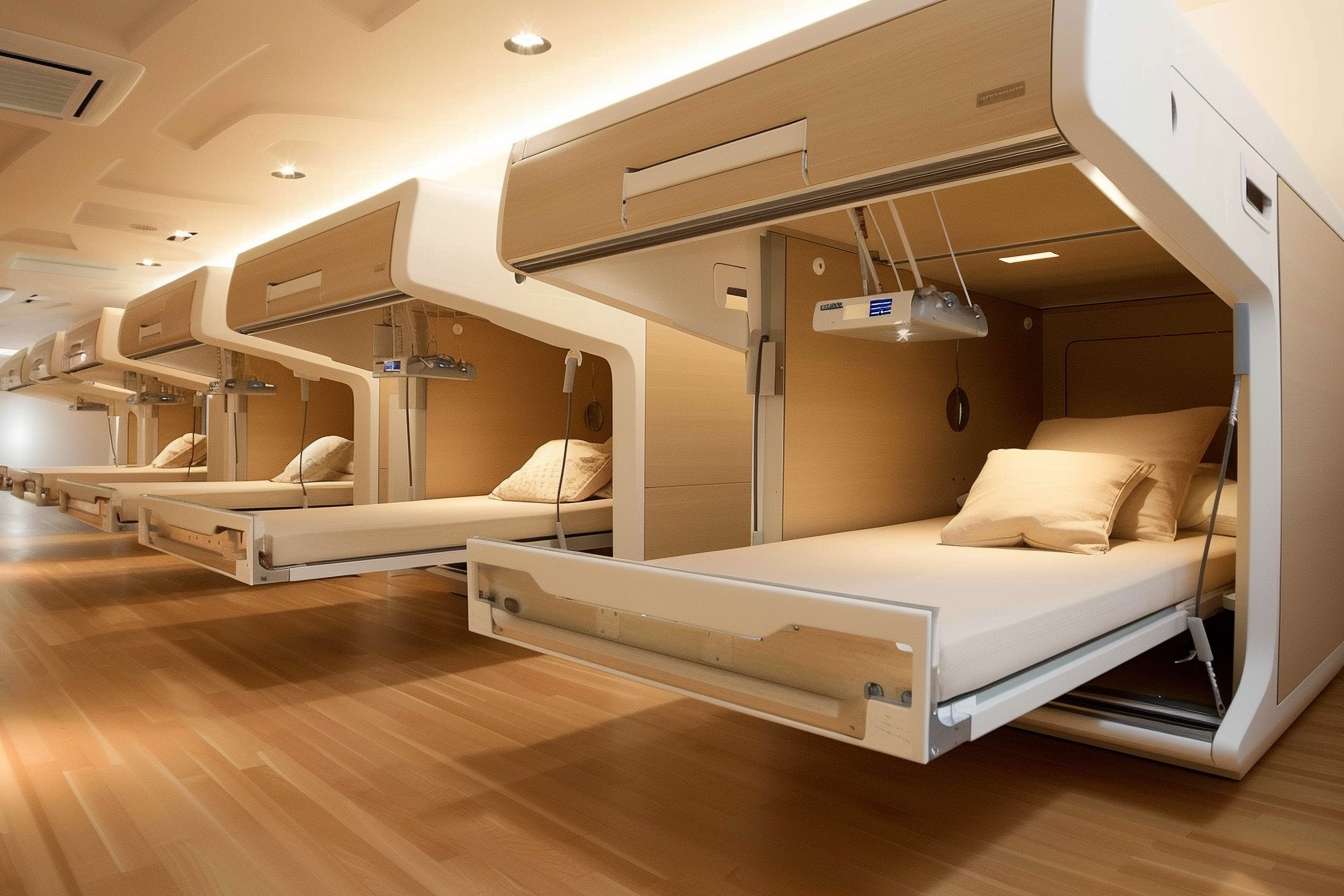Unraveling the Mystery of Capsule Hotels: A Unique Sleep Experience
Japan's capsule hotels have long intrigued travelers with their compact, futuristic design. This innovative accommodation concept, born from necessity in space-constrained urban areas, has evolved into a global phenomenon. From businessmen seeking quick overnight stays to adventurous tourists craving a taste of Japanese ingenuity, capsule hotels offer a distinct blend of efficiency, affordability, and cultural immersion. Let's delve into the world of these miniature marvels and explore their growing appeal beyond Japan's borders.

Anatomy of a Capsule
A typical capsule measures about 2 meters long, 1 meter wide, and 1.25 meters high. Despite their compact size, these pods are equipped with surprising amenities. Most feature:
-
A comfortable single mattress
-
Climate control
-
Reading lights
-
TV or radio
-
Wi-Fi connectivity
-
USB charging ports
-
Privacy curtains or doors
Some newer models even incorporate smart technology, allowing guests to control lighting and temperature via smartphone apps.
Evolution and Global Expansion
While the basic concept remains unchanged, capsule hotels have undergone significant refinements. Modern iterations often feature sleeker designs, enhanced privacy features, and improved communal spaces. The concept has also spread beyond Japan, with capsule hotels popping up in major cities worldwide.
European adaptations often blend capsule-style accommodations with hostel-like social areas, appealing to budget-conscious millennials. In contrast, some Asian markets have elevated the concept, creating luxury capsule experiences with high-end amenities and exclusive lounges.
The Appeal of Minimalism
The rise of capsule hotels coincides with a global trend towards minimalism and efficient living. For many travelers, these micro-accommodations offer a chance to experience a stripped-down lifestyle, if only for a night. The absence of excess space and possessions can be refreshing, allowing guests to focus on rest and relaxation without distractions.
Sustainability and Capsule Hotels
As the travel industry grapples with sustainability concerns, capsule hotels present an intriguing solution. Their compact design inherently reduces energy consumption and resource use compared to traditional hotel rooms. Many newer capsule hotels incorporate eco-friendly materials and energy-efficient systems, further minimizing their environmental impact.
Capsule Hotel Insights:
-
Women-only floors are common in Japanese capsule hotels, addressing safety concerns and cultural norms
-
Some capsule hotels offer themed pods, from sci-fi designs to cozy wood-paneled nooks
-
The average stay in a capsule hotel is just 1-2 nights, making them ideal for short city breaks
-
Many capsule hotels provide lockers or storage areas for luggage, as the pods themselves have limited space
-
In Japan, it’s customary to remove shoes before entering the capsule area, with slippers provided for common areas
The Future of Compact Accommodation
As urban populations grow and travel patterns evolve, the principles behind capsule hotels may shape the future of short-term accommodation. We’re already seeing variations like sleep pods in airports and compact sleeping solutions in co-living spaces. The capsule hotel concept continues to adapt, blending technology, design, and changing traveler preferences to create unique sleep experiences around the world.
Whether you’re a curious traveler seeking a quintessential Japanese experience or a pragmatic globetrotter looking for an efficient place to rest, capsule hotels offer a glimpse into a world where space is at a premium but innovation knows no bounds. As this concept continues to spread and evolve, it challenges our notions of comfort, privacy, and the essential elements of a good night’s sleep.




